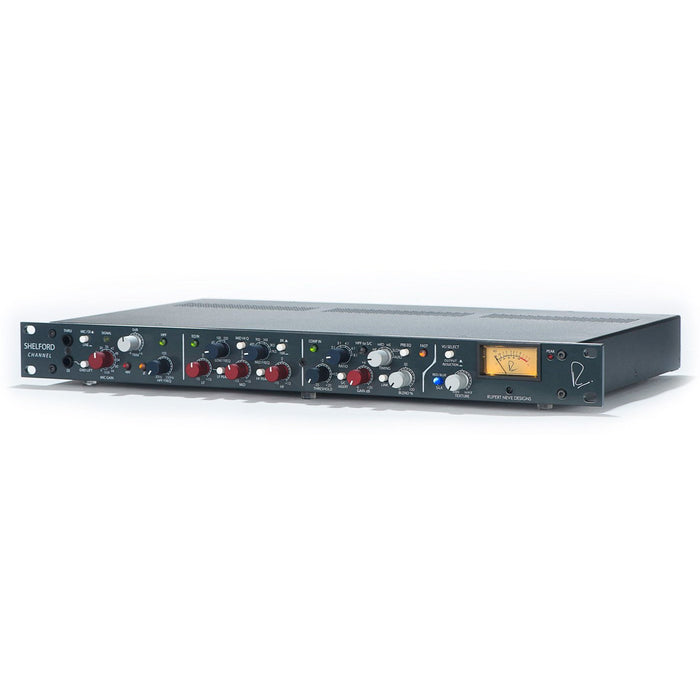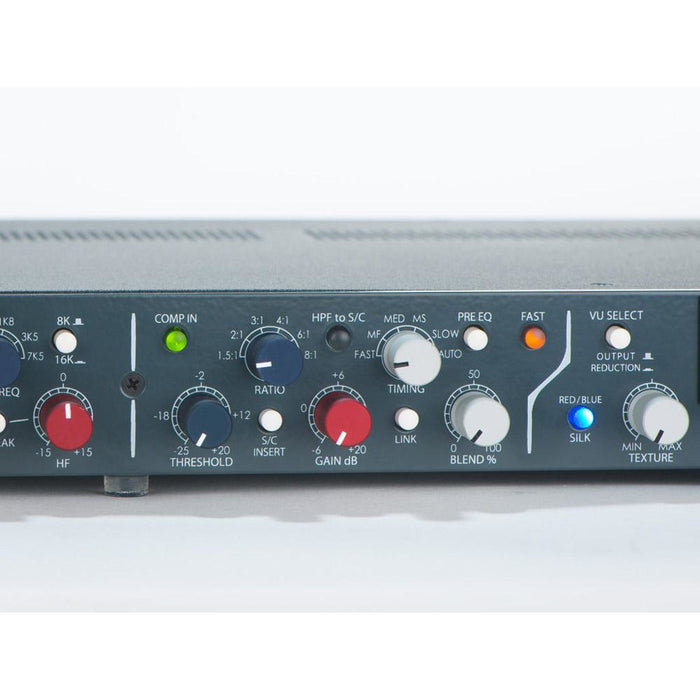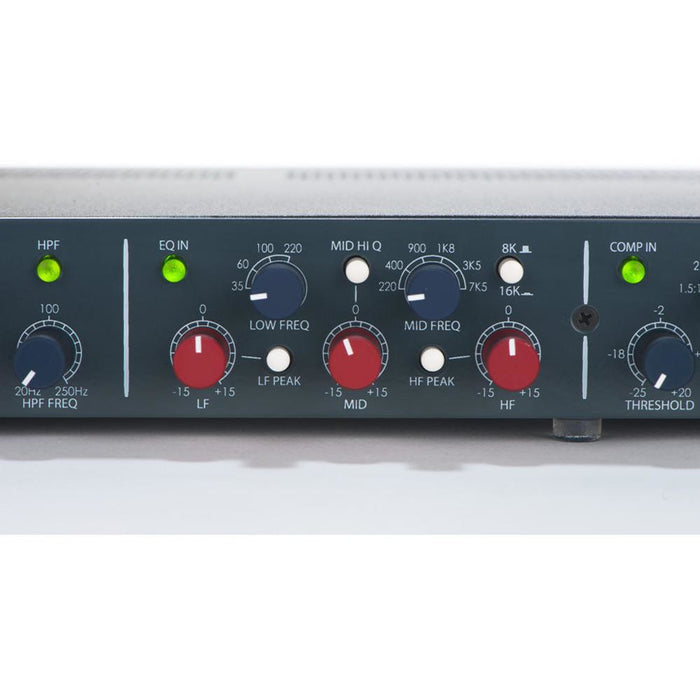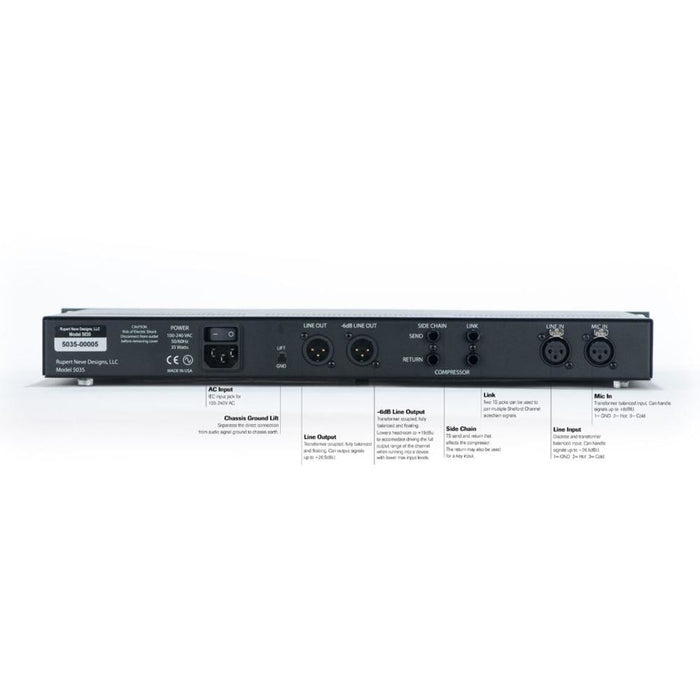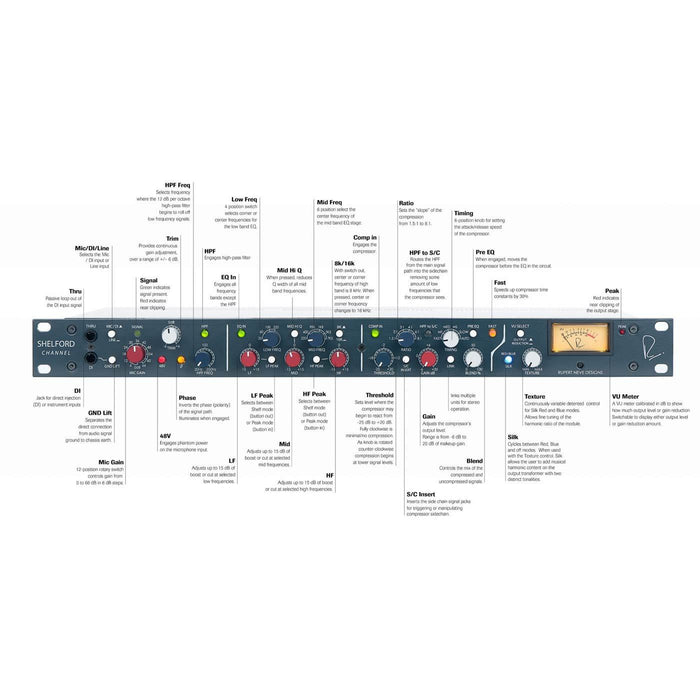Rupert Neve Designs 5035 Shelford Channel
£2,999.16 ex. vat
Rupert Neve Designs 5035 Shelford Channel
The RND Shelford Channel Mic Preamp is the product of over 50 years of evolution from the original classic consoles like the 1073, 1064, 1081 & 2254 but adapted for the 21st century studio. This beautifully designed rack mountable unit provides you with a 3-band EQ, Diode-bridge Compressor and a new dual-tap transformer output stage allowing you to maintain headroom. The Shelford Channel mic preamp would be a great tool for any studio and with its new sleek design it’s will fit in with all your other modern outboard gear.
Features
Direct Input
The Hi-Z front panel input uses the same discrete class-A FET with transformer topology as the Rupert Neve Designs RNDI, but it utilizes the new RN4012 input transformer directly into the microphone preamp for gain. This design, delivers exceptional clarity to high-Z sources, with a substantial low-end presence and incredibly smooth high frequencies. The DI also includes a passive THRU output to feed a separate amplifier.
MIC/DI/LINE
Switches between microphone/direct injection input (button out) or line input (button in).
Phase
This push button switch inverts the polarity of the signal path. It illuminates when engaged. (The symbol “Ø” is often used to denote opposite polarity.)
8k/16k
With the switch out, the center or corner frequency of the high band is 8 kHz. With the button pressed, the center or corner frequency changes to 16 kHz. Between this switch and the HI PEAK switch, you have 4 different EQ curves to finesse the high frequency content.
Ratio
Sets the “slope” of the compression from 1.5:1 (minimal) to 8:1 (significant). For example if this knob is set for 3:1 then if the signal goes 15 dB over the threshold then it attenuates 10 dB and allows the output to rise 5 dB. In general, low ratios can not damage the music as much as high ratios but high ratios may be more useful to minimize clipping and OL lights in the recorder.
When setting the Threshold and Ratio it is useful to use the VU meter. However even more importantly, you should rely on your ears and use the COMP IN button to perform confidence checks.

